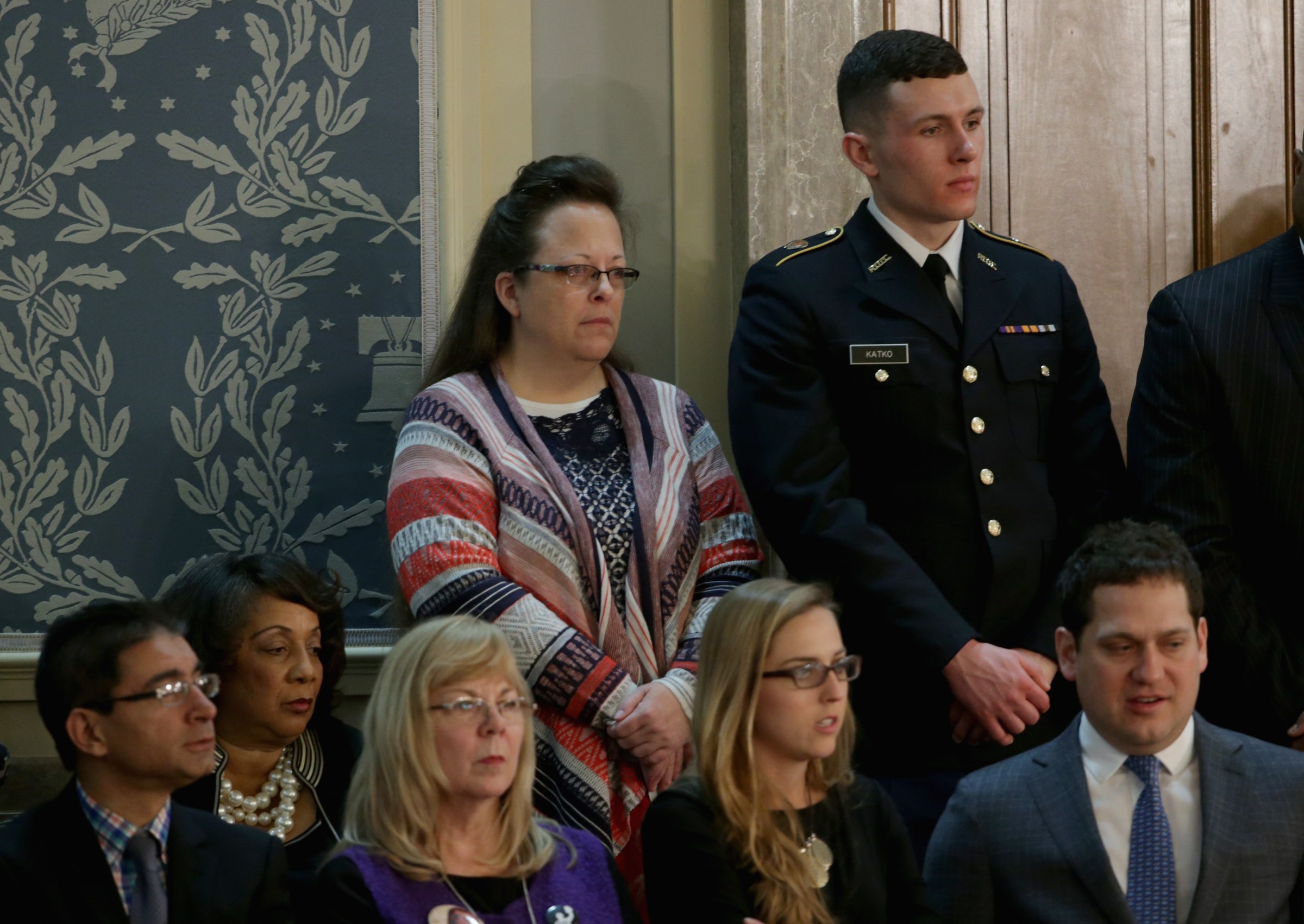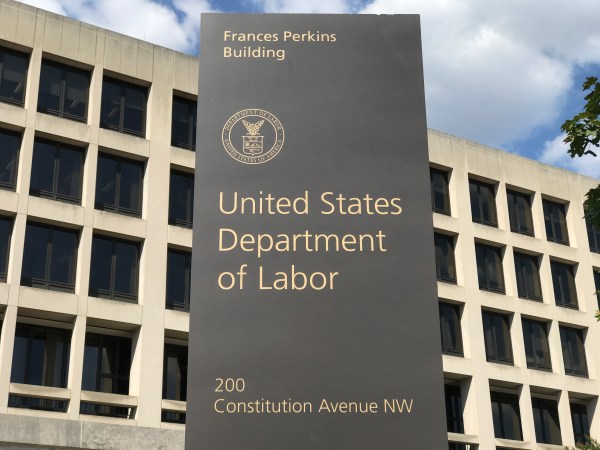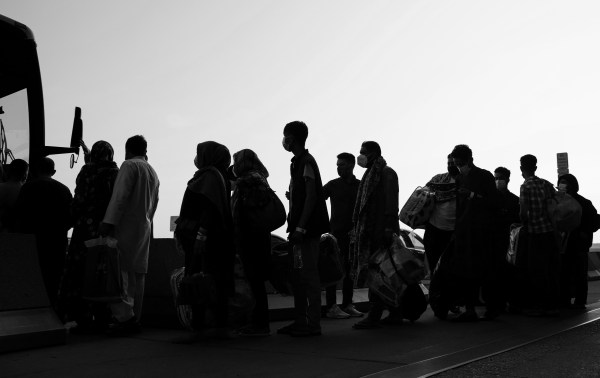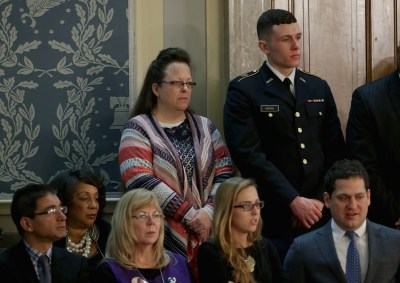Political pundits and social media users are expressing concern for the fate of Obergefell v. Hodges in the wake of a petition for writ of certiorari filed with the Supreme Court by an opponent of same-sex marriage.
Kim Davis, a former county clerk in Kentucky, was jailed in 2015 for refusing on religious grounds to issue a marriage license to a gay couple less than a month after the Supreme Court in Obergefell legalized same-sex marriage nationwide. In 2023, a federal jury found Davis liable for $100,000 in damages to the couple, and earlier this year, the U.S. Court of Appeals for the 6th Circuit denied Davis’ appeal. Earlier this month, Davis petitioned the high court to review that decision and asked the court to overturn Obergefell, describing the ruling as “legal fiction.”
The news has prompted a number of claims that are misleading or lack context. Some social media users have incorrectly claimed that the Supreme Court will hear the case, others are implying that the demise of Obergefell is a foregone conclusion, and still others have raised claims about the Respect for Marriage Act (RFMA), passed in 2022, which codifies that states must recognize same-sex and interracial marriages performed in other states.
“Banning gay marriage was always part of their plan, just like repealing Roe v. Wade,” Mike Nellis, a former senior adviser to Vice President Kamala Harris, wrote in a tweet on Monday. “They want to ban gay marriage now. Is interracial marriage next?” read another tweet by Majid Padellan, a popular left-wing blogger.
That’s a lot to unpack, but it’s worth sorting through the various claims independently.
First, the Supreme Court has not yet decided whether to hear Davis’ appeal. As SCOTUSblog reports, the justices asked the plaintiffs who sued Davis to respond to the petition by September 8, and the plaintiffs have requested an extension to October 8. In short, we won’t know for a while whether the court will even hear Davis’ case.
Even if the court does take up the case, legal experts say that Davis faces an uphill climb in her effort to have Obergefell overturned. For starters, this is not the first time Davis has appealed to the Supreme Court. The court declined to hear a similar petition by Davis in 2020.
“I think if they were going to, [Davis’ appeal] would not be the case,” Daniel Epps, professor of law at Washington University in St. Louis and co-host of the “First Mondays” podcast, told The Dispatch. “I don’t really see the impetus to do this right now, especially given that it would be pretty unpopular.”
Walter Olson, a senior fellow at the Cato Institute’s Center for Constitutional Studies, argued that Davis’ appeal of her own damages liability has a better chance of being heard by the court than her challenge to Obergefell. “There are a couple of other arguments she’s raising which some see as having a better chance. Doesn’t mean they have a good chance, but a better chance than the Obergefell one,” Olson told The Dispatch.
And even if the court decided to revisit Obergefell on its merits, it could do so either to strengthen its case or to return the issue of same-sex marriage to the states. “One of the possibilities would be that some justices were interested in regrounding a constitutional right of same-sex marriage on some foundation other than Kennedy’s,” Olson said, referring to former Justice Anthony Kennedy’s majority opinion in Obergefell.
Epps, who clerked for Kennedy, believes that a different constitutional grounding for same-sex marriage could have prevailed in Obergefell had the court’s bench been constituted differently. “I think the opinion would have looked very different. Maybe you would have put more on [the] Equal Protection Clause. Maybe there’s other parts of the Constitution you could look at, like the privileges or immunities clause.”
One Threads user stated, “Gay marriage was never codified, so it’s now officially on the chopping block with the Supreme Court. And for those of you still thinking they won’t come for your rights - they’re coming for yours next.“
That claim is incorrect. In 2022, Congress passed and President Joe Biden signed the RFMA, which requires the federal government and states to recognize both same-sex and interracial marriages legally performed in other states. Olson explains that the law would render same-sex marriages “portable” throughout the United States even if Obergefell were overturned. “If you had a legitimately contracted marriage in one state, you could move to a different state, and it would have to be recognized in the same way that marriages in general are,” Olson said.
But while some have pointed out that the RFMA would protect already ordained same-sex marriages in redder states, new marriages could become unavailable in those same states if Obergefell were overturned.
“New marriages would become unavailable to gay couples who just now decide to get married in the conservative states. But they could take a budget airline to the nearest state that did celebrate the marriages, get married there, come back and have their marriage be legally valid,” Olson continued.
If you have a claim you would like to see us fact check, please send us an email at factcheck@thedispatch.com. If you would like to suggest a correction to this piece or any other Dispatch article, please email corrections@thedispatch.com.






Please note that we at The Dispatch hold ourselves, our work, and our commenters to a higher standard than other places on the internet. We welcome comments that foster genuine debate or discussion—including comments critical of us or our work—but responses that include ad hominem attacks on fellow Dispatch members or are intended to stoke fear and anger may be moderated.
With your membership, you only have the ability to comment on The Morning Dispatch articles. Consider upgrading to join the conversation everywhere.